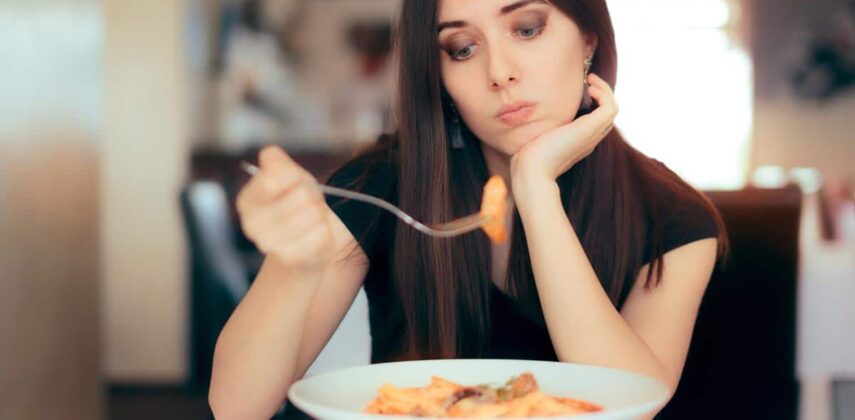A healthy diet is one of the most important levers for good health, but at what point does an obsession with healthy eating do more harm than good?
The term orthorexia was first used by Dr. Steven Bratman in 1997 to describe patients with an extreme and often misguided obsession with eating proper food[1].
Though still not an official diagnosis, the National Eating Disorders Association describes orthorexia as an unhealthy obsession with ‘healthful’ eating[2]. Unlike other eating disorders, people with orthorexia are not as concerned with their weight, but rather, the perceived “purity” of the foods they eat to the point of obsession.
Orthorexia typically evolves from a well-intended goal to eat healthier, often with hopes to improve feelings of wellbeing or to treat an ailment.
For people susceptible to disordered eating however, the diet snowballs into a never-ending pursuit of health.
A person with orthorexia becomes so preoccupied with managing their rigid food restrictions and planning meals that it interferes with their daily activities and damages their health and wellbeing.
Though no specific treatments exist, qualified health professionals who specialize in eating disorders, such as a psychologist and/or a dietitian, can help.
Keep these tips in mind to help prevent healthy eating from becoming an unhealthy obsession:
- Health is about more than just the food.
- When it comes to nutrition, establish fact from fiction.
- Forget the all-or-nothing diet.
- Your food choices do not define you.
- Stop comparing yourself to others.
The World Health Organization defines good health as “a state of complete physical, mental and social well-being and not merely the absence of disease or infirmity”[3].
So take a break from the meal prep routine and use the time to catch up with an old friend, get an extra hour of sleep, or try guided meditation with an app like Headspace instead.
Although online information can be a source for good, self-proclaimed “experts” are taking over social media with bad advice and it could be hurting your health.
A 2019 Study revealed that weight-loss information from top social media influencers was largely flawed.
Researchers found only 1 of the 9 blogs reviewed actually provided credible information from a qualified nutrition expert. Be on the lookout for telltale signs of bad nutrition advice like overly restrictive “detox” diets or “cleanses” which can lead to food obsessions and eating disorders.
We want what we think we can’t have, which is why overly restrictive diets can quickly backfire with intense cravings, bingeing, and for some, feelings of guilt over “falling off” their diet.
The truth is unless you have a food allergy, a single food or eating occasion is not enough to sabotage your health. It is more important to establish healthy habits that can be maintained long-term.
Start with one small, positive change like having a serving of veggies with dinner for example. As for your favorite foods, make plans to enjoy them in a healthier way, like sharing a pizza with your kids on a Friday.
If you are on social media, you likely get your fill of health influencers showing off photos of their nutritionally virtuous, #guiltfree lunch.
The problem? Nutrition is not a moral virtue and when we label foods as “good” or “bad” we can influence how we feel about ourselves when we eat them.
Of course, some foods are healthier than others, but eating a chocolate chip cookie is not a crime and avoiding added sugar does not make you a better person.
Lose the food shame and practice self-compassion as you learn to cultivate a more positive relationship with food.
Everyone has unique nutrition and lifestyle needs and there is no one best way of eating. Learn what works for your body and do what makes you feel good.
Unfollow health-obsessed influencer accounts or self-proclaimed “nutrition experts” on social media and find someone or something that inspires you instead.
If you are having trouble, get help from a health professional like a registered dietitian.




 This article changed my life!
This article changed my life! This article was informative.
This article was informative. I have a medical question.
I have a medical question.
 This article contains incorrect information.
This article contains incorrect information. This article doesn’t have the information I’m looking for.
This article doesn’t have the information I’m looking for.